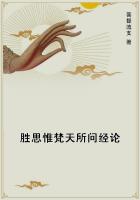Consumption points their place in the procession. With their sad sisterhood are intermingled many youthful maidens who have sickened in aristocratic mansions, and for whose aid science has unavailingly searched its volumes, and whom breathless love has watched. In our ranks the rich maiden and the poor seamstress may walk arm in arm. We might find innumerable other instances, where the bond of mutual disease--not to speak of nation-sweeping pestilence--embraces high and low, and makes the king a brother of the clown. But it is not hard to own that disease is the natural aristocrat. Let him keep his state, and have his established orders of rank, and wear his royal mantle of the color of a fever flush and let the noble and wealthy boast their own physical infirmities, and display their symptoms as the badges of high station. All things considered, these are as proper subjects of human pride as any relations of human rank that men can fix upon.
Sound again, thou deep-breathed trumpeter! and herald, with thy voice of might, shout forth another summons that shall reach the old baronial castles of Europe, and the rudest cabin of our western wilderness! What class is next to take its place in the procession of mortal life? Let it be those whom the gifts of intellect have united in a noble brotherhood.
Ay, this is a reality, before which the conventional distinctions of society melt away like a vapor when we would grasp it with the hand. Were Byron now alive, and Burns, the first would come from his ancestral abbey, flinging aside, although unwillingly, the inherited honors of a thousand years, to take the arm of the mighty peasant who grew immortal while he stooped behind his plough. These are gone; but the hall, the farmer's fireside, the hut, perhaps the palace, the counting-room, the workshop, the village, the city, life's high places and low ones, may all produce their poets, whom a common temperament pervades like an electric sympathy. Peer or ploughman, we will muster them pair by pair and shoulder to shoulder. Even society, in its most artificial state, consents to this arrangement. These factory girls from Lowell shall mate themselves with the pride of drawing-rooms and literary circles, the bluebells in fashion's nosegay, the Sapphos, and Montagues, and Nortons of the age.
Other modes of intellect bring together as strange companies.
Silk-gowned professor of languages, give your arm to this sturdy blacksmith, and deem yourself honored by the conjunction, though you behold him grimy from the anvil. All varieties of human speech are like his mother tongue to this rare man.
Indiscriminately let those take their places, of whatever rank they come, who possess the kingly gifts to lead armies or to sway a people--Nature's generals, her lawgivers, her kings, and with them also the deep philosophers who think the thought in one generation that is to revolutionize society in the next. With the hereditary legislator in whom eloquence is a far-descended attainment--a rich echo repeated by powerful voices from Cicero downward--we will match some wondrous backwoodsman, who has caught a wild power of language from the breeze among his native forest boughs. But we may safely leave these brethren and sisterhood to settle their own congenialities. Our ordinary distinctions become so trifling, so impalpable, so ridiculously visionary, in comparison with a classification founded on truth, that all talk about the matter is immediately a common place.
Yet the longer I reflect the less am I satisfied with the idea of forming a separate class of mankind on the basis of high intellectual power. At best it is but a higher development of innate gifts common to all. Perhaps, moreover, he whose genius appears deepest and truest excels his fellows in nothing save the knack of expression; he throws out occasionally a lucky hint at truths of which every human soul is profoundly, though unutterably, conscious. Therefore, though we suffer the brotherhood of intellect to march onward together, it may be doubted whether their peculiar relation will not begin to vanish as soon as the procession shall have passed beyond the circle of this present world. But we do not classify for eternity.
And next, let the trumpet pour forth a funereal wail, and the herald's voice give breath in one vast cry to all the groans and grievous utterances that are audible throughout the earth. We appeal now to the sacred bond of sorrow, and summon the great multitude who labor under similar afflictions to take their places in the march.















